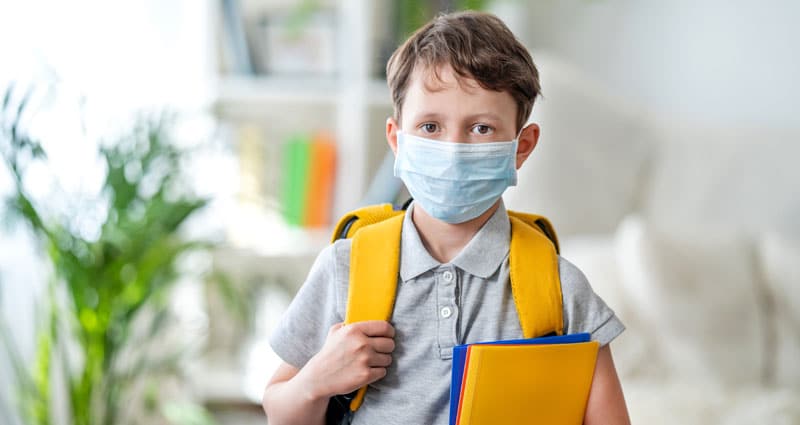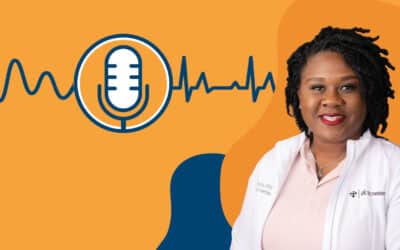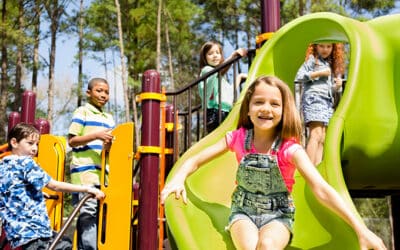The Delta variant is now the dominant strain of COVID-19 in the U.S., and it is spreading rapidly in our community. Compared with earlier forms of the virus, the Delta is like a viral hurricane, far more infectious. It is unfortunate that with the new variant we have had to take a step backwards, but we must take action to control and end this pandemic.
What does this spread of the Delta variant mean for children, especially those 11 and younger who aren’t yet able to be vaccinated? Our expert pediatrician, Brett Hutchinson, MD, FAAP, answers some common questions.
What Should Parents Do to Protect Their Children?
Get vaccinated!
The best thing parents and the community at large can do for children is to get vaccinated against COVID-19. We know that this vaccine is safe and can make a difference. Adults owe it to children to protect ourselves, and until the vaccine is available to children younger than 12 it’s especially important that adults and older children get vaccinated.
Keep masking
Governor John Bel Edwards has re-instated the mask mandate in Louisiana, and the CDC recommends masking in places with high levels of transmission, which includes all of Louisiana and Mississippi. Wearing a close-fitting mask over your nose and mouth when you’re indoors in public helps protect others, including kids.
Social distance
Keep your distance from others as much as possible in crowded places.
Practice good hand hygiene
Keep washing your hands frequently and thoroughly, and avoid touching your mouth, nose and eyes.
What About…
Parents will have to carefully weigh the risks and benefits, use their judgment and assess their family’s risk tolerance when making decisions, but we asked Dr. Hutchinson whether he would recommend we let our kids participate in these activities:
In-person school? Yes, with distancing, masking and frequent sanitizing. While the risk of infection will never be zero, the benefits of in-person school outweigh the risks for the vast majority of kids.
Carpool or buses? Yes. These will likely to be a necessity for many students, and masks and open windows can help make shared transportation safer.
Church worship service indoors? Yes, with distancing and masking.
Playdates and sleepovers? It depends. Sleepovers are certainly optional at this point, and for playdates ideally a few families, with all adults and older children vaccinated, might agree to let their younger unvaccinated children get together with each other but nobody else.
Stay the night with vaccinated grandparents? It depends on how healthy the grandparent is. Unfortunately, we are seeing breakthrough COVID cases in vaccinated people, so if they have medical conditions grandparents will have to consider the benefit vs. risk. As cases in our community eventually go back down the risk will fall too.
Outdoor activities and playdates? Yes, activities like playing at a playground or swimming are much safer, especially when there isn’t a lot of close contact or touching.
Indoor experiences geared toward kids? Probably not. We should prioritize children being in school, so these activities pose risks that are likely not worth the benefit. Once COVID cases go back down in our community then absolutely children should be able to take part in things that are good for their enjoyment and development of social skills.
Dining at restaurants? If the restaurant’s employees are masked and the tables are spaced, this is a lower risk than other indoor activities. However, be aware that the walk into the restaurant, handrails, doorknob and trips to the bathroom are where germs can be picked up.
Travel by plane? Airlines have taken measures to make air quality safe on the planes, but it’s really the airport, bathrooms and touch surfaces that are more worrying. Even trips by car present risk for encountering and spreading germs along the way.
How Can I Help My Child Deal with COVID Anxiety?
The pandemic can be scary for kids who are all on different levels of understanding. Many have developed significant anxiety whether from the stories about infections or due to the isolation that has affected them. Parents are the best people to talk to their children on their appropriate level. Answer their questions honestly in a calm way. Depending on the child’s age, consider limiting their exposure to stories about the pandemic on the news or social media. Let them know that wearing masks and washing their hands not only helps them but helps their classmates, teachers and caregivers. Make sure they know that this will end, and that families are resilient. As always, talk with your pediatrician about your child’s particular risks and to help your family make the right decisions for you.




